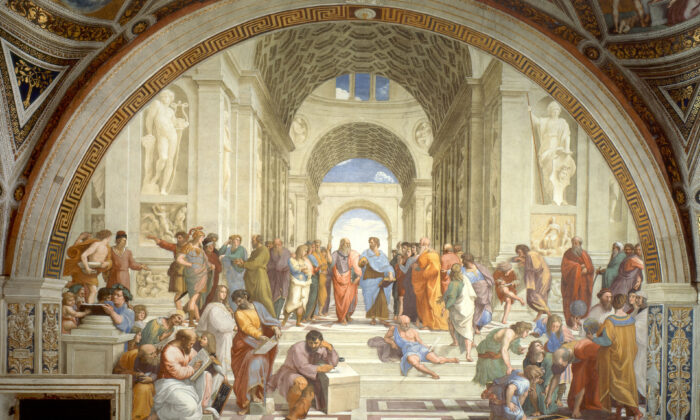Commentary
In recent decades, there has been a surge in various sources claiming to hold the key to happiness. From celebrities to new age gurus, cannabis retailers, moral relativists, New Atheists, Darwinian dogmatists, self-righteous social justice activists, and even individuals who identify as a different gender to gain benefits – everyone seems to have their own recipe for a fulfilled life. However, upon closer inspection, it becomes evident that these are nothing more than ideological gimmicks being marketed.
Despite the prevalence and influence of these voices, persuading students who have been indoctrinated in postmodernist ideologies at their educational institutions to appreciate the wisdom of ancient thinkers like the Greeks and Romans has become a daunting task. Many students today seem to have little to no knowledge of the ancient philosophers, poets, and theologians who laid the foundation for Western thought.
This lack of familiarity with the classics was highlighted in an email from a prospective student in a course titled “The Western Tradition,” who mistakenly believed they would be studying Western movies instead of the literary and philosophical works of antiquity. Similarly, another student’s confusion about the significance of “the matter of Troy” and skepticism about the concept of pride as a vice underscore the disconnect between modern attitudes and traditional values.
The prevailing postmodernist narrative portrays Western civilization as inherently flawed, tainted by racism, sexism, and other forms of oppression. This narrative overlooks the rich intellectual and moral legacy of the West, dismissing it as outdated and irrelevant. In an age where progress is equated with technological advancements, the importance of studying the wisdom of the ancients is often overlooked.
G.K. Chesterton’s timeless insight that “happiness is as grave and practical as sorrow” serves as a reminder that true fulfillment cannot be found in superficial or fleeting pleasures. The belief that modern solutions are inherently superior to those of the past reflects a narrow-minded view that fails to appreciate the enduring wisdom of classical thinkers.
For educators striving to impart the value of the examined life to their students, the challenge lies in combating both historical ignorance and ideological arrogance. By encouraging critical engagement with ancient philosophies and literature, they hope to instill a deeper appreciation for the perennial questions of human existence.
In today’s society, many of us are unknowingly subscribed to the Playboy School of Philosophy. Happiness is often reduced to shallow pursuits like personal pleasure, material success, or social media popularity. Self-help gurus preach about “making time for ourselves” or “following our bliss” in a rebellious manner against traditional norms.
In a world devoid of religious beliefs, happiness is often equated with worldly pleasures. However, throughout history, both pagan and Christian civilizations viewed worldly possessions with contempt, understanding that true happiness cannot be derived from temporary and material things. The goddess Fortuna’s gifts are fleeting, and the awareness of their impermanence undermines the happiness they bring.
Ancient Greek and Roman philosophers emphasized detachment and indifference towards worldly goods. They believed that true happiness was found in virtue, wisdom, and a spiritual connection with the divine. By cultivating an interior life focused on moral and spiritual growth, individuals could attain a lasting happiness that was impervious to external circumstances.
Ultimately, the wise man was seen as self-reliant and invulnerable, akin to a deity among mortals. Their happiness was not dependent on external factors but rooted in inner peace and enlightenment.
Please note that the views expressed in this article are the author’s opinions and do not necessarily reflect those of The Epoch Times.
Source link




